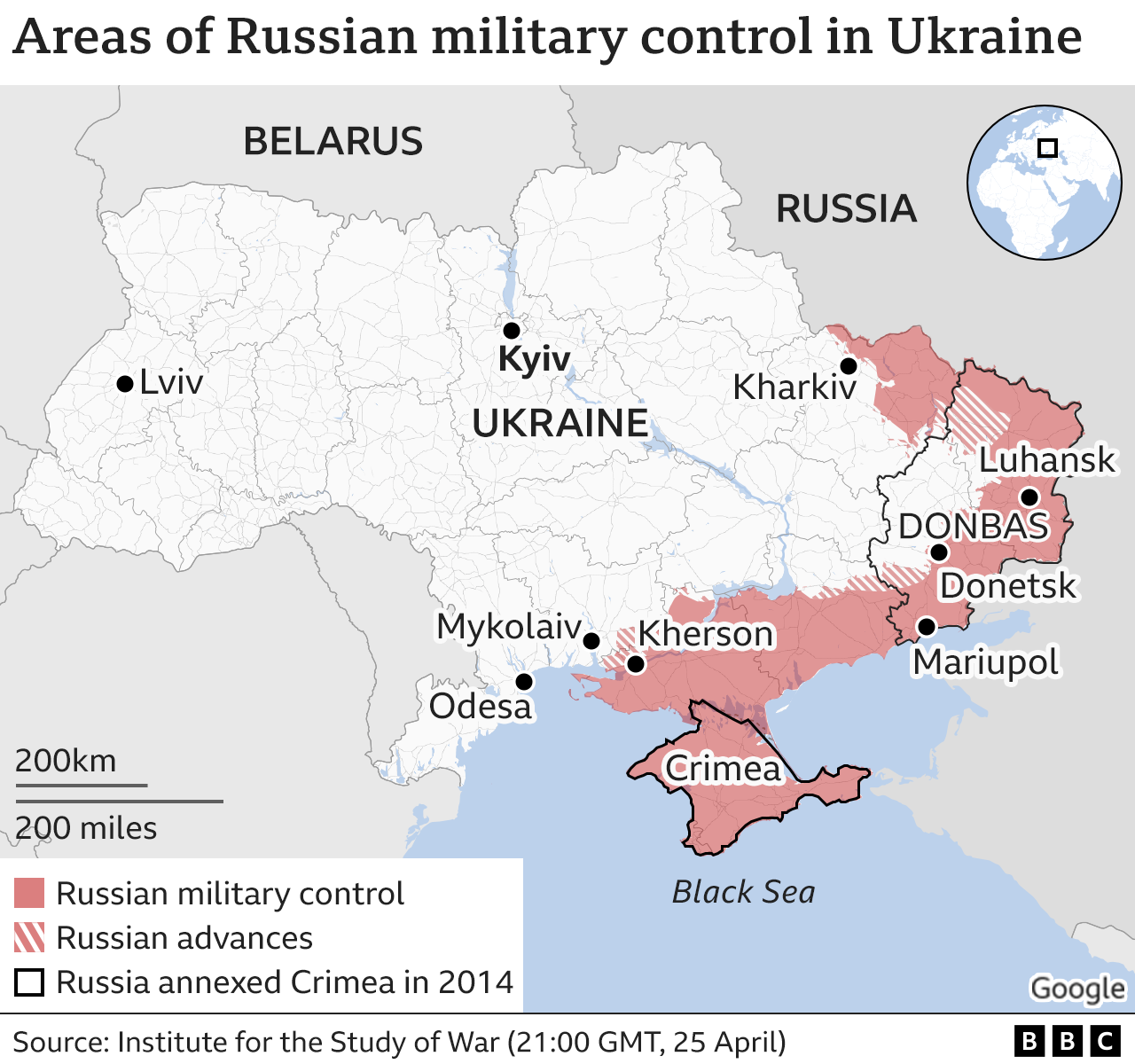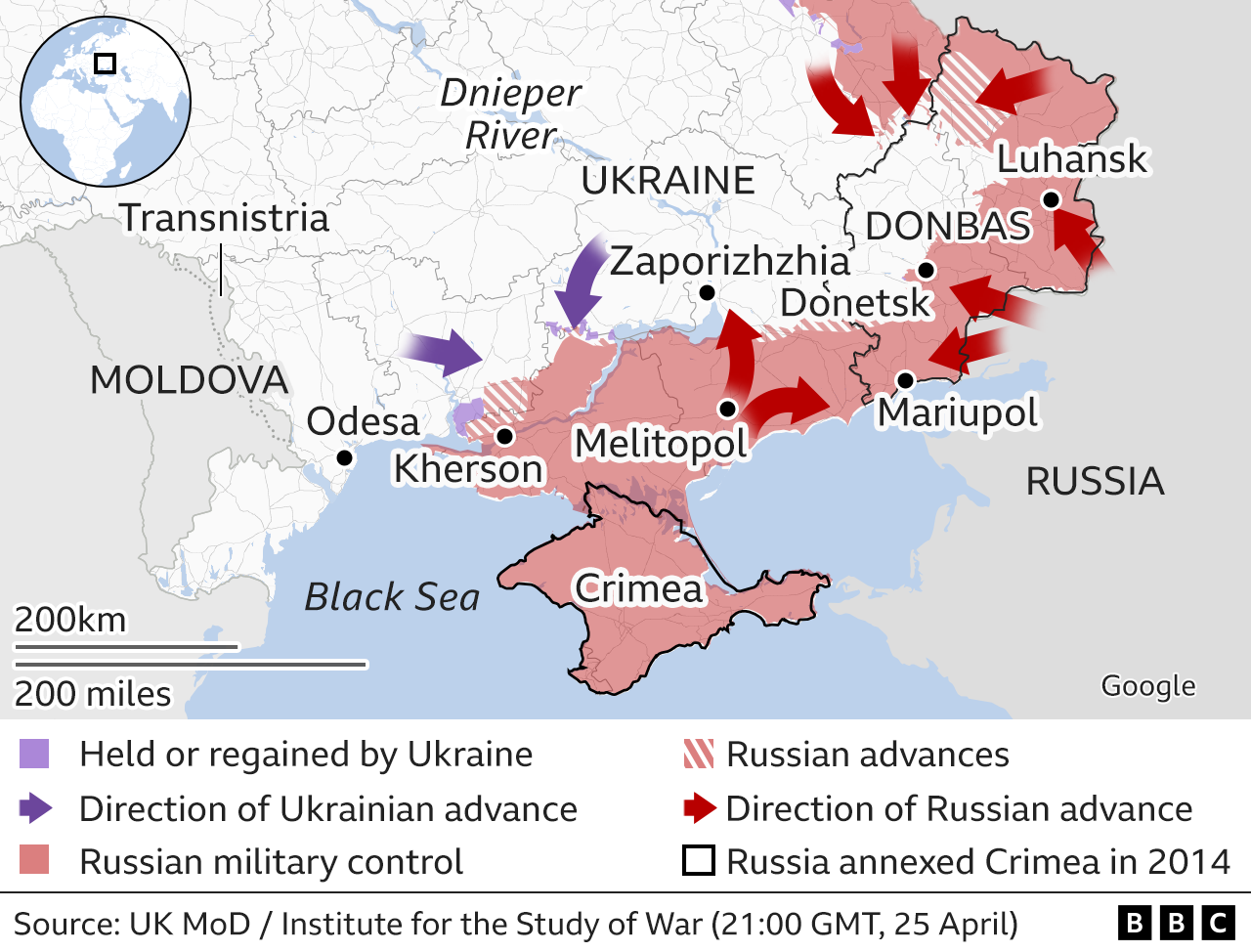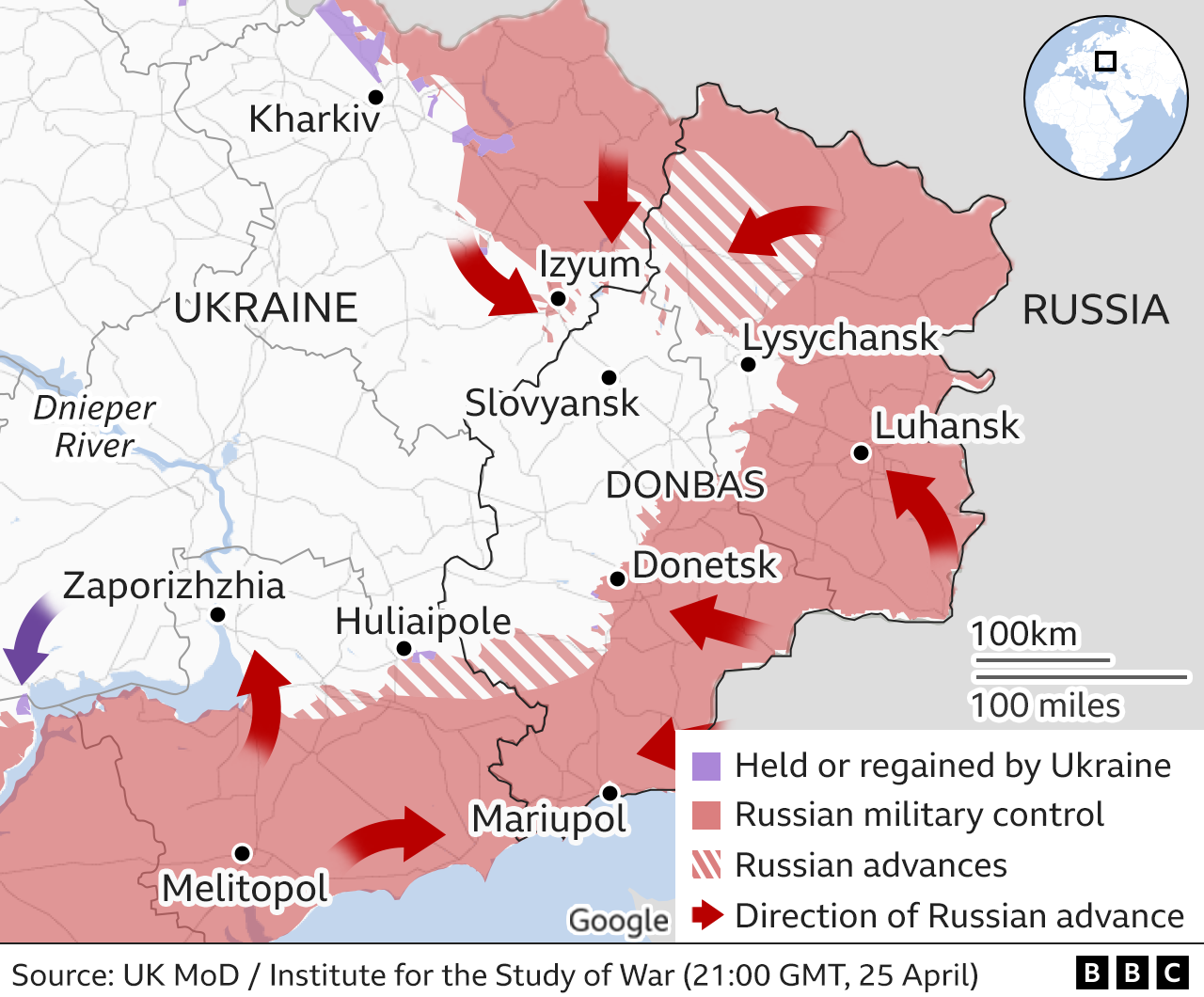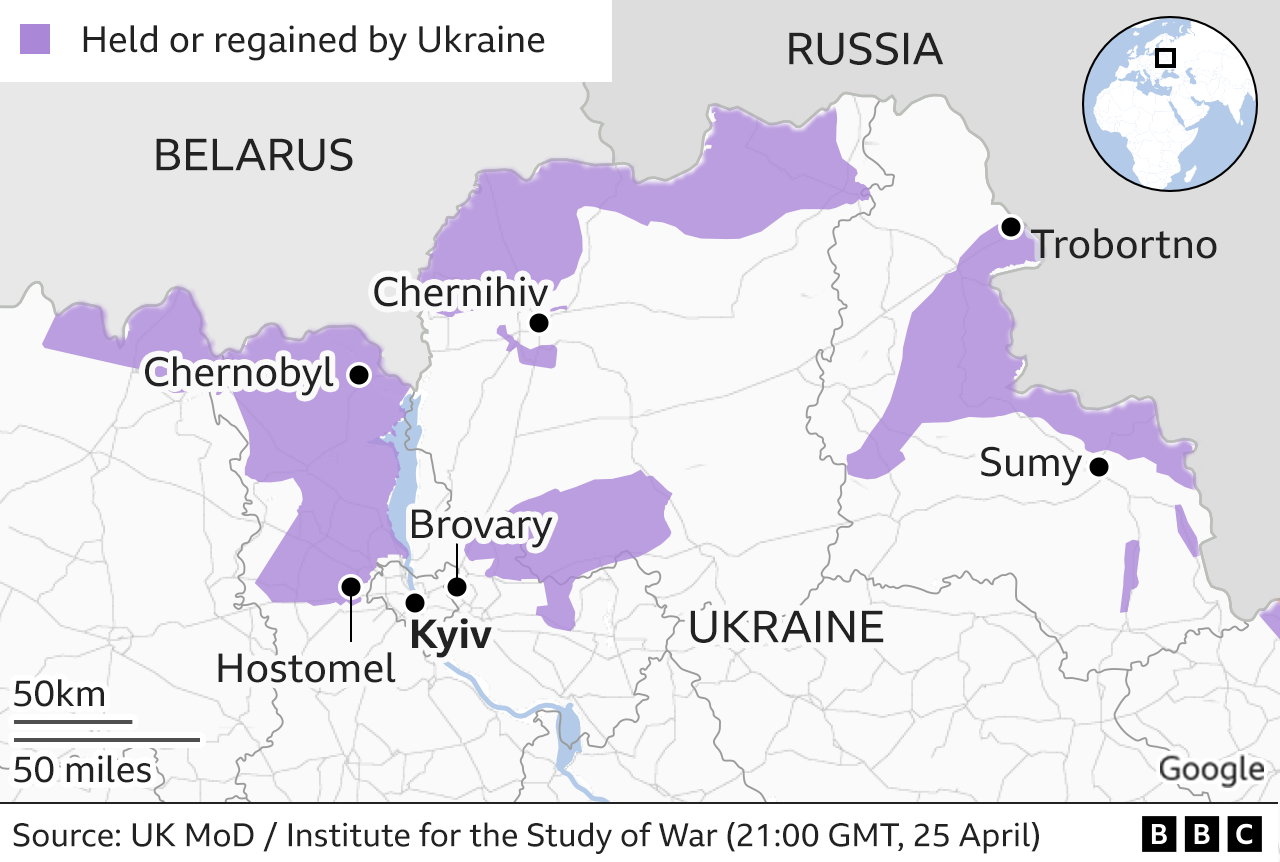BBC News 26 April 2022 - by the Visual Journalism Team
Heavy shelling is continuing along the 300-mile front line in eastern Ukraine as fighting intensifies there, but analysts say Russian forces are making limited gains at the moment.
Here are the latest developments:
Russia invaded Ukraine on 24 February, but its forces withdrew from around the capital Kyiv and surrounding regions to Belarus and Russia in early April.
Russia has since refocused its efforts on the east and south of the country.
Russia targets full control of south
Russian forces initially made rapid gains in the south, with their main objective being the creation of a land corridor between Crimea, which it annexed in 2014, and areas held by Russian-backed separatists in Donetsk and Luhansk.
But strong resistance from Ukrainians forces near Mykolaiv in the west and in Mariupol in the east significantly slowed Russian advances.
The port city of Mariupol, which has been encircled since the start of March, is now mostly under the control of Russian forces - although several hundred Ukrainian troops remain in the Azovstal metal works factory in the south of the city.
Last week, Russian forces blockaded the factory rather than attempting to take control of it, but Ukrainian officials say that Russian troops may be preparing a new assault on the sprawling industrial complex.
Russia has been accused of war crimes for its intense shelling of the city, with the local mayor saying at least 20,000 civilians have been killed. More than 100,000 people remain trapped in the city.
To the west, Russia has been attempting to push towards Odesa, with the aim of cutting off Ukraine's access to the Black Sea, but their advances stalled at Mykolaiv.
Last week, a senior Russian military commander said the objective was still to take control of all of southern Ukraine and establish a land corridor with Transnistria - a breakaway part of Moldova where Russian troops are already based.
War in Ukraine: More coverage
- DONBAS: Facing the Russian Army on the front line
- UKRAINE: Ukrainian border village where rockets litter roads
- ODESA ATTACK: 'My world was destroyed by a Russian missile'
- READ MORE: Full coverage of the crisis
Fighting intensifying in the east
Russian officials have said its forces are fighting for the "complete liberation" of the Donbas, which broadly refers to Ukraine's eastern regions of Donetsk and Luhansk, where Russian-backed separatists held significant territory before the invasion.
Russia has substantially increased its troop numbers in the Donbas region in recent weeks, with satellite imagery showing a build-up of forces on Ukraine's border and convoys of vehicles travelling towards the front line.
Russian forces are attempting to encircle Ukrainian troops in the region, according to the UK Ministry of Defence, by advancing south from the city of Izyum and north from the city of Zaporizhzhia.
In recent days, their assaults have focused on Rubizhne, Severodonetsk and Popasna, three small cities to the east of Izyum - but their gains have been limited so far, according to the Institute for the Study of War.
Military analysts have told the BBC that Ukrainians are outnumbered three-to-one in the region and are likely to concede some open ground in order to concentrate on the defence of key cities, where the Russians will find it more difficult to fight.
North retaken after Russian retreat
Ukrainian forces retook large areas around Kyiv in early April after Russia abandoned its push towards Kyiv, which had begun in the first days of its invasion.
Successful counterattacks by Ukrainian forces helped retake areas around Kyiv and, as the Russians withdrew, the Ukrainians were able to advance all the way to their northern borders with Belarus and western Russia.
By David Brown, Bella Hurrell, Dominic Bailey, Mike Hills, Lucy Rodgers, Paul Sargeant, Mark Bryson, Zoe Bartholomew, Sean Willmott, Sana Dionysiou, Joy Roxas, Gerry Fletcher, Jana Tauschinsk, Debie Loizou and Prina Shah.
About these maps
To indicate which parts of Ukraine are under control by Russian troops we are using daily assessments published by the Institute for the Study of War with the American Enterprise Institute's Critical Threats Project.
To show key areas where advances are taking place we are also using daily updates from the UK Ministry of Defence and BBC research.
The situation in Ukraine is fast moving and it is likely there will be times when there have been changes not reflected in the maps.






